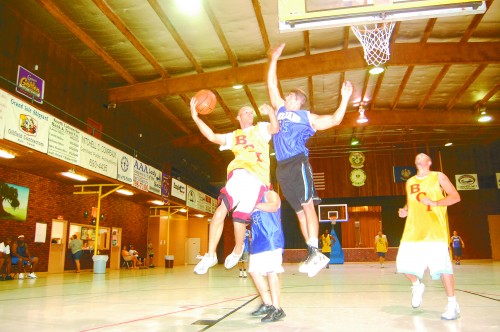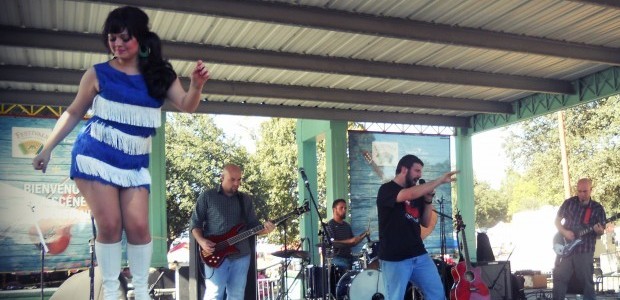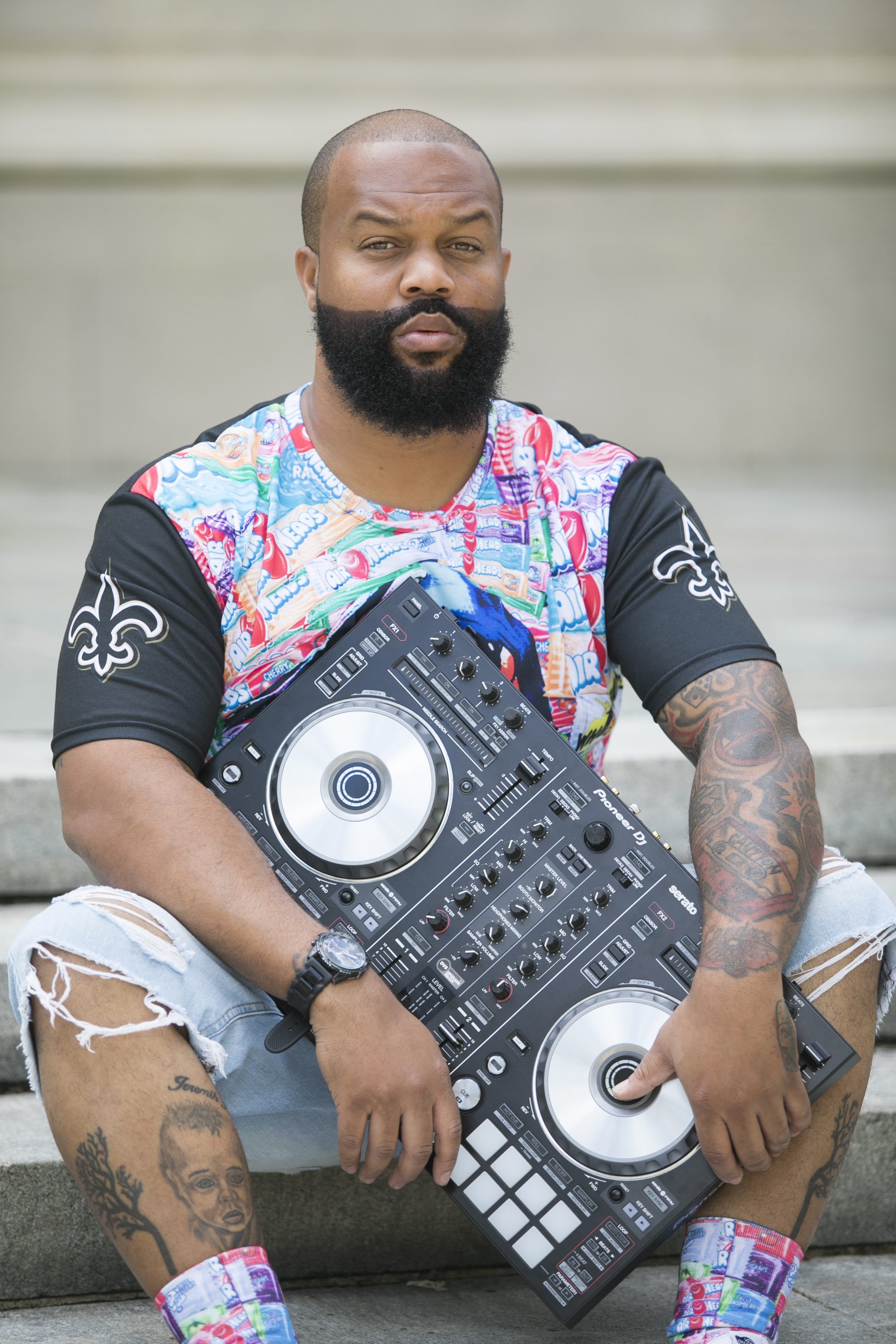
Terrebonne hosting fundraising tournament
May 29, 2012
Cecile Brou Mongrue
May 31, 2012Although Louisiana French and Cajun culture are interrelated, Isle Dernière frontman Rocky McKeon insists the terms aren’t interchangeable.
“We don’t call ourselves Cajun music, because there’s a cliché associated with Cajun music,” McKeon says. “When people hear the words ‘Cajun music,’ they expect accordions, fiddles, triangles and that sort of thing.”
Isle Dernière’s music does not consist of fiddles, triangles or that sort of thing. Washboards have no place amid the band’s sound, which has more in common with Led Zeppelin than it does with celebrated regional band Steve Riley and the Mamou Playboys.
McKeon writes the band’s music and all-French lyrics. The Houma-based group credits its lead singer/rhythm guitarist for its Francophone emphasis, and he credits a year abroad in Belgium for renewing his interest in the language.
The French lexicon doesn’t define the group’s musicianship, but its blues-rock frame offers a portal into the sextet band’s cerebral thinking.
“I see the band as a way to make Louisiana French current, so that we’re not trapped in this tradition,” says McKeon, who worked as a consultant on the Dictionary of Louisiana French. “We’re bringing it in to everyday life, what people are doing today, the sounds that they hear on the radio.”
Isle Dernière’s first album, a five-track EP, is available June 9 via CD Baby, iTunes, Amazon and other streaming sites. The band celebrates the release with parties at The Boxer and The Barrel June on 22 and Lafayette’s Blue Moon Saloon on June 23.
The album was mostly recorded in Waylon Thibodeaux’s studio, but saxophone player Ethan Jordan recorded his parts from South Korea, where he attended college.
Coalesced rifts, drumbeats and saxophone produce a sound of organized passion that nods to blues, jazz and a variety of rock influences while encouraging dancing. A pair of go-go dancers flanks the band on stage and boosts this urge.
McKeon, who writes most of the music, says the beat may be suited for two-stepping but the music is classic rock oriented.
The tone isn’t of Rage Against the Machine or counter-culture rock and roll; rather, the lyrics read like the blues, an acknowledgement and release of misery, a plea for awareness and action.
“Blues de la prairie,” a three-verse track included on the band’s EP, encapsulates that sentiment.
“I open my eyes and what do I see/A lot of people without hope/It’s like Hell with the heat/It’s like Heaven without the Lord.
“Water is everywhere and the land is disappearing/One day we’re going to drown like rats/Life is hard, harder than ever/I’m going to tell you that it’s a crime, baby.
“Boats float door to door/All they find is death/Listen to what I’m telling you/Life today can’t be worse,” the English translation included with the album reads.
In “Rôdailleur,” another track on the EP, McKeon takes French speakers through the depth of heartbreak while the band strings together a wailing duel of saxophone and electric guitar with a steady one-two beat. Dance is an organic inevitability.
“It’s just rock and roll,” the vocalist says. “I think it is part of our culture to write sad lyrics but put them to an up-beat tempo.”
Elizabeth Satterly and Erin Stickney, both of Lafayette, mirror one another from platforms framing the musicians and add to the festivity. The go-go dancers joined the group in October 2010.
“It’s just a lot of energy,” Stickney says of the dancing. “It’s another way to bring the audience into the show. They really seem to enjoy it.”
Chuck Waguespack, the bassist, says his role is similar to the dancers’ – “feed the energy.” Waguespack, who has an experimental rock background, is the band’s newest member, having joined late last year after the original bassist relocated.
Nick Person, who released three albums with Id Vs. Ego, joined the band at about the same time as the dancers..
The band’s goal, McKeon said, is to avoid future turnover and stick together. In the interim, the group is working on the tracks for a full-length album.
The group’s foundation was set after guitarist Brian Berry sent a Myspace message to McKeon in the summer of ‘08 expressing interest in playing together. “We wanted to rock,” Berry says.
The duo began “jamming” under the name Mellowberry, even then with all French lyrics. They added a drummer, bassist and saxophonist and two dancers. The drummer and bassist have since changed, and the saxophone player left the country to study abroad.
Berry says blues and classic rock are his main influences, but he acknowledges often listening to Cajun music. As he expresses uncertainty over whether this is portrayed in his rifts, McKeon assures him that it is. The subtleties are only that, however, as Isle Dernière hopes to offer an alternative to the typical Bayou sound.
“Instead of playing traditional Cajun music all the time, you can reach out to more people and get them to say, ‘Hey, you can appreciate your culture,’” Berry says. “Blues originated down here, too, not just Cajun music. “
The group’s name translates to and reveres “Last Island,” a Louisiana barrier island that doubled as a pleasure resort until it succumbed to the Hurricane of 1856.
The island, which held about 400 people at the time, was completely submerged underwater. More than half of the people were killed; those who survived camped inside a beached steamer named “Star,” which was reportedly the only sign that an island existed before the storm. When the water receded, only portions of the land resurfaced, and the split remains were renamed Isles Dernières.
The deterioration continued over time, and the nearest populated community to the island’s location today is Cocodrie. Now five fragmented landmasses, the once-thriving island is frequented only by winged wildlife.
“I see it as sort of a warning of what we could become if nothing is done to save or preserve what we have,” McKeon says. “The island was destroyed, wiped away, and now you don’t hear anything about it.”
McKeon, a Robinson Canal native, has seen coastal erosion impact the lives of his childhood friends – many have relocated because of what he attributes to flood concerns. This experience, he says, factored into the name composition.
The Houma-based group splits most of its performances between Houma and Lafayette but has played at several French-celebrating festivals, including two stints at Nicholls State’s Swamp Stomp and Festivals Acadiens et Créoles.
McKeon’s individual acclaim has been well chronicled, specifically when well-known Francophone artist Zachary Richard incorporated McKeon’s song “Le grand gosier,” about the Deepwater Horizon oil spill, into a hip-hop song and included it on his album. McKeon also lent his voice to the production, the proceeds from which are dedicated to helping people who suffered as a result of the spill.
Aside from McKeon’s philanthropy, the band continues to develop its unique blend of French lyrics atop a blues-rock groove, which members say widens the appeal of the language.
“You’re not going to have people who are 18- to 20 years old listening to the same music their grandparents listened to, and that’s a sure-fire way for it to die out, if it stays the same,” Stickney says. “It has to change if it’s going to keep going.”
Bassist Chuck Waguespack, drummer Nick Person, lead singer Rocky McKeon and lead guitarist Brian Berry are flanked on-stage by go-go dancers Elizabeth Satterly and Erin Stickney to make up Isle Derniére. The group releases its first album, a five-track EP, June 9.
Isle Derniére frontman Rocky McKeon belts French lyrics at Lafayette’s Blue Moon Saloon. The band’s name translates to and reveres “Last Island,” a Louisiana barrier island that doubled as a pleasure resort until it succumbed to the Hurricane of 1856.
Best bets from “Isle Dernére” include “La Terre set enflammée” (The Earth is on Fire), “Blues de la prairie” (Wetlands Blues) and “Rôdailleur” (I’m a Wanderer).













